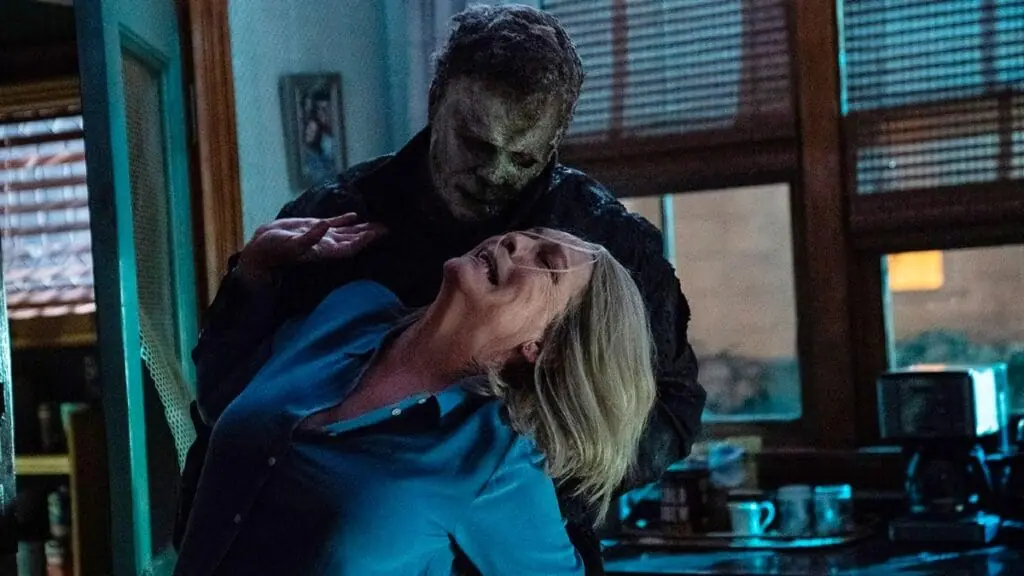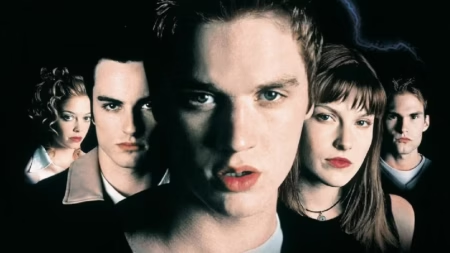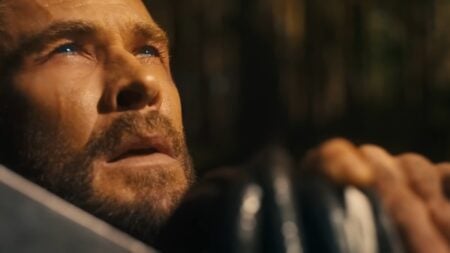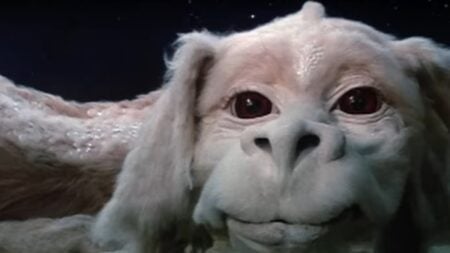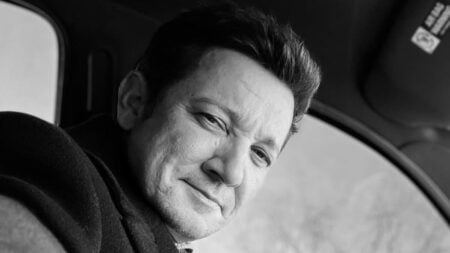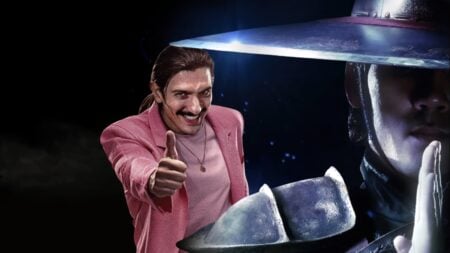Skip To...
The end of the Halloween franchise should have already come. Two reboots fell flat. Of the thirteen films, more fail than succeed. There are a few great Halloween movies and several duly forgotten embarrassments. Even when David Gordon Green de-canonized most of the series, the second entry in his trilogy competed with the worst early films. Horror icons never die, but Halloween Ends is the perfect opportunity to end the franchise.
The Halloween Franchise Has Nothing Left

I think the most telling moment in Halloween Ends is its last ten minutes. The film spends hours building a mythology that sees evil as something more than a man with a knife. Instead of locking the series to Michael Myers, they find a new antagonist infected by The Shape. After all their work with Corey, the last ten minutes are a retread of the 2018 remake. I see that as an open admission of emptiness. It’s a display of empty palms. Through its finale, Halloween Ends tells us the franchise has nothing left to offer. There will be nothing new in a Halloween movie, and if there is, it will be pushed aside to return to the old routine. With either nothing left to say or no will to say it, the Halloween series should bow out gracefully.
Many of Michael Myers’ slasher contemporaries hung up their mask a few years ago. Scream is still around with an army of fans. Terrifier is the natural escalation of the subgenre with gore that makes the earlier entries look tame. X, Pearl, Freaky, and Thanksgiving add elements of critique or parody. Texas Chainsaw is still around, to no one’s delight. However, the two most iconic slashers, Freddy and Jason, went to sleep more than a decade ago. Michael should have joined them. He went through the same steps. Michael enjoyed a dodgy remake in 2009, the same year as Jason’s and a year before Freddy’s. The best time to end the Halloween franchise was then. The second best time is now.
Why Won’t Horror Franchises Die?

The Halloween franchise could have ended decades ago, and almost no one would call for its return. H20 was the twentieth anniversary of the series. Critics didn’t like it but defended it above some other sequels. H20 made a shocking amount of money at the box office. Its follow-up, Halloween: Resurrection, put the series to sleep for a while. It was as terrible as H20, but crucially, not as financially successful. The awful truth is audiences will uncritically turn up to watch a horror movie with a name they remember. More than any other genre, IP recognition and familiar gimmicks hold weight in horror. Look no further than Halloween‘s peers, most of whom openly admit the inspiration they took from John Carpenter’s classic. Just reading the word Halloween puts that music in your head. However, iconography works both ways, and it may soon be the ruination of Halloween.
How many bad Halloween movies does it take to change public perception? Can we, as a species, still see Michael Myers and remember the 1978 classic? Won’t the memories of every foible between then and now taint the positive recollection of the good times? I feel a deep sense of dread with the announcement of every new Halloween movie. Halloween Kills comes to me before Carpenter’s genre-defining slasher. We won’t see anything like Halloween from this franchise again. No. 14th iteration in any series shakes the industry or spawns countless imitators. If Halloween continues, however, we will see plenty of films like Halloween Kills. That’s a good enough reason to let Halloween die.
Halloween Ends is a fascinating entry in the franchise. It’s also a solid signal to wrap it up. It’s a conclusive ending with a farewell to the antagonist and protagonist. The world has been with these characters for 45 years, and no one wants more. There’s no need to further tarnish the legacy of a great film. Halloween keeps coming back because people don’t know what they want. A marketable name will work until it doesn’t. Halloween: Ressurection proved that even Michael has a breaking point. Halloween Ends is the ending the franchise deserves. It’s imperfect, ambitious, and ultimately as mishandled as the overall series.

